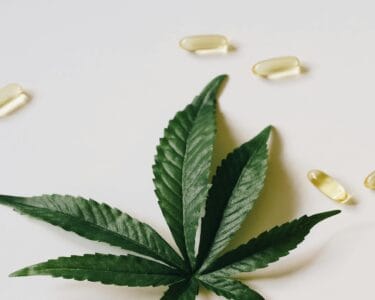What is Green Tea?
Green tea, derived from the Camellia sinensis plant, is a type of tea that has been consumed for centuries, primarily in Asian cultures. Unlike black tea, which undergoes fermentation, green tea is made from unoxidized leaves, preserving its natural compounds and distinct flavor profile.

Source of Green Tea:
The primary sources of green tea include India , China, and Japan. Where it is cultivated and harvested with care to ensure its quality and potency. Each region has specific varieties and flavors, influenced by climate, soil, and cultivation techniques.
Bioactive Compounds in Green Tea and Their Benefits:
Green tea is rich in bioactive compounds,like polyphenols, catechins, and flavonoids.The bioactives compunds in green tea possess powerful antioxidant properties. Among these, one of the most studied compounds is epigallocatechin gallate (EGCG), known for its numerous health benefits.


Epigallocatechin gallate (EGCG) Benefits:
Antioxidant:
EGCG has abilities to scavenges free radicals from body, protecting cells from oxidative damage and reducing the risk of chronic diseases such as cancer and cardiovascular disorders.
Anti-inflammatory:
EGCG helps alleviate inflammation, easing symptoms associated with conditions like arthritis and inflammatory bowel disease.
Metabolic Boost:
EGCG has been shown to enhance metabolism and promote fat oxidation.Thus it is beneficial for weight management and obesity prevention.
Neuroprotective:
EGCG may protect against neurodegenerative diseases like Alzheimer’s and Parkinson’s by modulating pathways involved in neuronal survival and function.
Comparison of Green Tea with Other Types of Tea:
Green tea, black tea, and oolong tea all come from the same plant, Camellia sinensis.These tea’s undergo different levels of oxidation during processing.Green tea is made from unoxidized leaves, resulting in a light, fresh flavor with higher concentrations of antioxidants.Black tea is fully oxidized, giving it a bold, robust flavor, while oolong tea is partially oxidized, offering a balance between green and black tea flavors.
How Green Tea Works When Consumed:
When consumed, bioactive compounds of green tea are absorbed into the bloodstream. Where they make use of their beneficial effects on various organs and systems. EGCG, boost metabolism,reduce inflammation,and oxidative stress, contributing to overall health and well-being.
5 Scientifically Proven Benefits of Green Tea:
- 1. Your Heart Health: Regular consumption of green tea has been linked to lower blood pressure, reduced cholesterol levels, and a decreased risk of heart disease.
- 2. Weight Management: The catechins and caffeine in green tea can boost metabolism and promote fat burning, aiding in weight loss and weight maintenance.
- 3. Diabetes Control: Green tea may improve insulin sensitivity and regulate blood sugar levels, helps to manage type 2 diabetes.
- 4. Dental Health: The antibacterial properties of green tea can inhibit the growth of oral bacteria, reduce the risk of cavities, gum disease, and bad breath.
- 5. Mental Well-being: EGCG and other compounds in green tea may have mood-enhancing effects, reducing stress, anxiety, and symptoms of depression.
- 6.Green Tea effects on Athletic Performance and Recovery:
- Green tea contains compounds catechins and caffeine, which may have ergogenic effects, enhancing athletic performance and endurance.Caffeine can improve focus, alertness, and physical performance by stimulating the central nervous system and mobilizing fatty acids for energy.the antioxidant properties of green tea may help reduce exercise-induced oxidative stress and inflammation, promoting faster recovery.
Green Tea for Weight Loss: Scientific Explanation:
Green tea supports weight loss through multiple mechanisms, including:
Increased Thermogenesis:
Catechins and caffeine stimulate thermogenesis, the process by which the body generates heat and burns calories, leading to greater energy expenditure.
Fat Oxidation:
EGCG promotes the breakdown of fat stores for energy, particularly abdominal fat, which is associated with an increased risk of metabolic disorders.
Appetite Regulation:
Green tea may help suppress appetite and reduce cravings, leading to lower calorie intake and improved weight management over time.
Green Tea’s Role in Obesity:
Green tea boost the metabolism and promote fat oxidation makes it a valuable product for weight management and obesity prevention
Green Tea’s Role in Diabetes:
It may improve the insulin sensitivity and regulate blood sugar levels, therefore green tea can help prevent and manage type 2 diabetes.
Green Tea’s Role in Anxiety and Depression:
EGCG and othercompounds in green tea have been shown to have calming and mood-enhancing effects, which can help alleviate symptoms of anxiety and depression. Epigaloocatechin gallate in green tea reduces the oxidative stress and may promote feelings of relaxation and emotional well-being.
Role of Green Tea in Traditional Medicine Practices:
Green tea has been used for centuries in traditional medicine practices. .In Ayurveda, green tea is valued for its cooling, detoxifying, and rejuvenating effects on the body, and it is often prescribed to balance the doshas and promote overall health.
Green Tea’s Role in Heart Health:
Regular consumption of green tea has been associated with lower blood pressure, reduced cholesterol levels, and a decreased risk of heart disease.
Green Tea’s Role in Skin Fairness:
Green tea’s antioxidant properties may help protect the skin from UV damage, reduce inflammation, and promote a clearer, brighter complexion.
Best Time to Take Green Tea and Scientific Explanation:
The best time to consume green tea is often debated, but many experts recommend enjoying it between meals or before physical activity to maximize its metabolic benefits. By Consuming green tea on an empty stomach may enhance its absorption and efficacy, allowing the body to reap its rewards more effectively.

How to Make Green Tea at Home:
Making green tea at home is simple and requires just a few basic steps:
- 1.Choose High-Quality Leaves: Start with high-quality loose-leaf green tea or tea bags for the best flavor and health benefits.
- 2. Boil Water: Bring fresh, filtered water to a boil and allow it to cool slightly to around 80-85°C (175-185°F) to avoid scalding the delicate tea leaves.
- 3.Steep Tea: Place the tea leaves or tea bag in a cup or teapot and pour the hot water over them. Let the tea steep for 2-3 minutes for a milder flavor or up to 5 minutes for a stronger brew.
- 4. Enjoy: Remove the tea leaves or bag and enjoy your freshly brewed green tea. For added flavor, you can stir in honey, lemon,if desired.
Green Tea with Lemon and Ginger Recipe for Weight Loss:
Ingredients:
- 1 green tea bag or 1 teaspoon of loose-leaf green tea
- 1-2 slices of fresh lemon
- 1 teaspoon of grated ginger
- Honey or stevia (optional, for sweetness)
- 1 cup of water
Instructions:
Boil Water: Bring one cup of water to a boil in a small saucepan or kettle.Prepare Ingredients: While the water is heating, slice a lemon and grate fresh ginger.Steep Green Tea: Place the green tea bag or loose-leaf green tea in a mug. Pour the boiling water over the tea and let it steep for 2-3 minutes to extract the beneficial compounds.Add Lemon and Ginger: After steeping, remove the tea bag or strain the loose leaves. Add the sliced lemon and grated ginger to the tea.Sweeten (Optional): If desired, add honey or stevia to sweeten the tea. Stir until the sweetener is dissolved.Enjoy: Sip and enjoy your refreshing and revitalizing green tea with lemon and ginger!
Benefits Of Green Tea for Weight Loss:
Metabolic Boost: Green tea contains catechins, epigallocatechin gallate (EGCG), which have been shown to increase thermogenesis and fat oxidation,and it leads to a higher metabolic rate and enhance calorie burning.
Appetite Suppression: The combination of green tea, lemon, and ginger can help suppress appetite and reduce cravings, leading to lower calorie intake and improved weight management.
Digestive Aid: Ginger is known for its digestive properties, including promoting gastric motility and reducing gastrointestinal discomfort.
Hydration: Always Staying hydrated is essential for weight loss, as it helps maintain proper metabolic function and supports overall health.
Antioxidant Support:green tea and lemon are rich in antioxidants, which help protect cells from damage caused by free radicals and oxidative stress.
Green tea with lemon and ginger into your daily routine can be a delicious and effective way to support your weight loss goals while reaping the numerous health benefits of these natural ingredients. Remember to pair it with a balanced diet and regular physical activity for optimal results.
Side Effects of Green Tea:
Green tea is generally safe for most people when consumed in moderation, excessive intake may lead to side effects such as:
Caffeine Sensitivity: Green tea contains caffeine, which can cause insomnia, and digestive issues in sensitive individuals.
Iron Absorption: Some studies suggest that green tea may inhibit the absorption of iron from plant-based sources, potentially leading to nutrient deficiencies over time.
Liver Toxicity: In rare cases, high doses of green tea extract supplements have been associated with liver damage, particularly in susceptible individuals.

Right quantity of Green Tea Intake:
For optimal health benefits consume 2-3 cups of green tea per day as part of a balanced diet and healthy lifestyle. It’s essential to choose high-quality, organic green tea.Avoid excessive consumption, especially for those sensitive to caffeine or with underlying health conditions.
Recommended Dosage of Green Tea Extract for Supplementation:
The recommended dosage of green tea extract varies depending on factors such as individual health status and age.Typical dosages range from 250 to 500 mg of green tea extract per day, standardized to contain a specific percentage of EGCG.
It’s essential to follow product labels and consult with a healthcare professional before starting any supplementation regimen.
Potential Interactions between Green Tea and Medications:
Green tea contains compounds that may interact with certain medications, affecting their absorption, metabolism, or effectiveness. Catechins present in green tea may inhibit the activity of enzymes involved in drug metabolism, leading to altered blood levels of medications.Individuals taking medications should consult with their healthcare provider to determine if green tea consumption is safe and appropriate for them.







